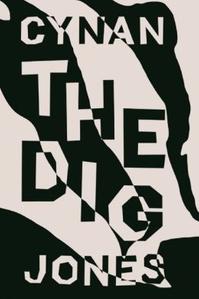

Structurally, the short novel is comprised of brief paragraphs with generous spacing--like a book of prose poems. Some are just a sentence long: "In the light the tools looked as if they were made of stone." The book has five parts, or acts, enigmatically titled The Horse, The Dig, The Cloth, The Sea and The Shard, as if it were a series of parables. But it's more in tune with Thomas Hobbes's definition of life: "nasty, brutish and short."
At The Dig's heart of darkness are two Welshmen. One, a "gruff and big man," forces badgers out of their setts for money or sport, to pit them against hounds. The practice was outlawed in 1835 but continues. The book opens powerfully with a brutal scene of this man trying to disfigure (thus hide) a dead badger. He's a violent man, without compassion. He is also a man whose life is governed by fear. If caught, he'll be sent back to jail. Jones portrays him as someone who takes life rather than give it, one who destroys, unlike his neighbor.
Daniel is a livestock farmer whose beloved wife recently died after being kicked in the head by a friend's horse. It's lambing season and he's busy tending to the land, the sheep and the delivery of baby lambs: "[H]e draws the lamb in one smooth strong stroke, and slaps and rakes its wet moss-like fur to make it breathe, feels the power of its fast heartbeat in the chicken-bone cage of its ribs, still wet in his hands... glistening oiled newborn thing--all of these things awatered." His wife's death rests heavily upon him. Exhausted by grief, "[t]he scent of her was in the room and it almost choked him to understand how vital to him this was."
Jones's narrative moves back and forth between the two men. When the badger baiter crosses onto the farmer's land in pursuit of his quarry, it's only a matter of time before they will clash: "The spade coming was like the wing of a bird." There's nothing bucolic about this elemental, extraordinary tale of good and evil. It's a bitter pill made easy to swallow thanks to art and its paean to life. The Dig is about cruelty, isolation and loss in a dark age. --Tom Lavoie, former publisher
Shelf Talker: Cynan Jones's first novel published in the United States is a spare, visceral story of isolation, sadness and love.

